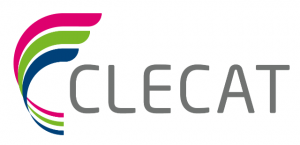

CLECAT, representing the Freight Forwarding and Customs brokerage sector in Europe, calls on the European Commission to take measures related to customs formalities to ensure the flow of essential goods across the EU borders.
As recognised by an EU Emergency Transport Council on 18th March 2020, the COVID-19 outbreak has a major impact on transport which in turn affects the whole EU economy, because of disruptions of supply chains. Keeping cargo flows running is vital for public health and the economy. Customs plays a major role in safeguarding the security of supplies and the integrity of the supply chains. The Freight Forwarding and Customs Brokerage sector, which ensures the fulfilment of Customs formalities jointly with authorities, urgently requires additional measures, support and communication to keep cargo flows running.
Dominique Willems, CLECAT’s Senior Manager noted: ‘We have written to Commissioner Gentiloni asking to take initiatives towards Customs authorities to encourage them to allow for delayed and other related taxes and payments.’ ‘We have noted that across Europe, governments have announced measures which allow the delayed payment of taxes such as income tax, corporate tax and VAT. Unfortunately, no such measures were announced in relation to Customs duties and other related taxes and payments.’ He continued: ‘our members are also urgently calling for the extension and flexibility in deadlines for Customs procedures and other formalities. Due to long waiting times at external and internal EU borders, reduced capacity for the public and private sector, general disruption in transport and at the same time a major increase of certain goods, deadlines for closure of Customs procedures cannot be met in all cases. The issue is especially pressing in relation to Transit procedures but is also affecting other procedures. If no such action would be taken, additional Customs debts and administrative burden will occur, putting an even heavier strain on supply chains.’
Despite the EU’s ambition to digitise all exchange of information related to Customs formalities, many documents, certificates and other paper-based evidence need to be provided physically by economic operators to Customs authorities. Likewise, where certain validation by authorities such as stamps or signatures is required, this remains to be done physically and in person by those authorities. In order to safeguard the health of both the officials and the employees of economic operators and to minimise workload and waiting times, CLECAT calls for pragmatic solutions which allow for the digital exchange of documentation, such as the exchange of digital copies through email.
To reduce current delays and disruption at the EU’s internal and external borders, we urgently call on the EU Commission to advise and assist Customs authorities to reduce non-essential or non-time pressure related physical and administrative checks to a minimum and focus on crucial formalities.
Lastly, CLECAT calls on the Commission to provide clear, timely and EU-wide communication related to Customs formalities. A functional and structured information system between the Member States and the Commission and towards the supply chain actors is needed.
CLECAT will continue its dialogue with the EU institutions and will continue to inform its members about the effects and measures taken on the COVID-19 pandemic.
CLECAT represents the interest of thousands of companies in the Freight Forwarding, Logistics Services and Customs Services. Multinational, medium and smaller sized companies all fall within its Membership. Together these companies handle about 65% of all transport in Europe and the industry performs over 80% of all customs formalities in the EU.
A copy of the CLECAT letter to the EU Commission on Customs issues related to COVID-19 can be accessed here.
Coronavirus section on IIFA website
IIFA has dedicated a section of its website to Freight Industry relevant Coronavirus updates. This information can be found via the link below:
https://www.iifa.ie/coronavirus/ (page no longer live)